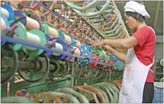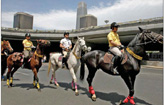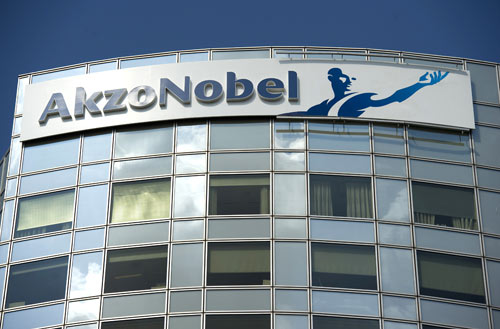Business
AkzoNobel ups R&D in China
Updated: 2011-06-14 08:05
By Hu Yuanyuan (China Daily)
|
AkzoNobel NV headquarters in Amsterdam. The company plans to double its sales in China to $3 billion by 2015 and look for more merger and acquisition opportunities in the country. Jock Fistick / Bloomberg |
Dutch company shifts focus from mature to fast-growing markets
AMSTERDAM - The Dutch coatings and chemicals company AkzoNobel NV plans to allocate 15 percent of its global research and development (R&D) resources to China within five years, in its latest effort to tap into fast-growing markets, the company's R&D head said.
"Around 50 percent of our R&D resources will be put into the high-growth markets, and China will be our number one choice," said Graeme Armstrong, AkzoNobel's executive committee member responsible for research, development and innovation.
The company now spends 2.5 percent of its revenue on R&D, with the emphasis on focused, bolder and sustainable innovation.
"Our investment in the R&D sector will further increase in the coming five years, and resources put into China and India will exceed those for Europe," Armstrong said.
AkzoNobel's revenue in high-growth markets, currently representing around 40 percent of the company's total, grew more than 20 percent last year, compared with a 10 percent increase in mature markets, according to the company's financial report.
The company reported a 12 percent revenue increase to 14.6 billion euros ($20.9 billion) for 2010, and revenue from AkzoNobel China jumped by 25.3 percent that year.
However, as the economic uncertainties grow, the company downgraded its growth target to 5 percent for 2011, compared with 12 percent last year.
"Our target is to outgrow the market average, and we've met the target in the first quarter. The overall growth for this year largely depends on the global economy," AkzoNobel CEO Hans Wijers said.
The company plans to double its sales in China to $3 billion by 2015 and look for more merger and acquisition opportunities in the country, Wijers said.
Meanwhile, AkzoNobel will strengthen its presence in China's inland areas, such as Chengdu in Sichuan province and Wuhan in Hubei province. It currently has 27 plants in China.
After acquiring Changzhou Prime Automotive Paint Co Ltd last year to strengthen its exploration in the fast-growing mid-market segment, AkzoNobel announced on Thursday its joint venture with Guangxi CAVA Titanium Industry Co Ltd for the production and supply of titanium dioxide, one of the most important materials in the production of paints and coatings.
The collaboration - which includes the construction of a new titanium dioxide plant in Qinzhou, Guangxi Zhuang autonomous region - will help to secure AkzoNobel's growing titanium dioxide needs for the Asian markets. Financial details of the deal were not disclosed.
Rapid growth is expected within the global coatings and paints market and most of the growth in demand will occur in Asia, especially China. As a result, the regional demand for titanium dioxide will rise.
"On one hand, by entering into this partnership with CAVA, we will improve security of supply in Asia for a critical raw material. On the other hand, the joint venture will also help us to get a competitive price for raw materials," said Wijers.
The rapidly growing price of raw materials is one of the key challenges AkzoNobel faces right now.
The joint venture with Guangxi CAVA Titanium will partly help it to better control costs.
"We've been working hard to control the raw materials price either by changing our component of raw materials or increasing our product price," Wijers said.
Although the company continues to look at merger and acquisition opportunities, Wijers stressed that their first and primary choice is still organic growth.
As one of its medium-term targets, AkzoNobel aims to achieve total annual revenue of 20 billion euros by 2015.
China Daily
Specials

Wealth of difference
Rich coastal areas offer contrasting ways of dealing with country's development

Seal of approval
The dying tradition of seal engraving has now become a UNIVERSITY major

Making perfect horse sense
Riding horses to work may be the clean, green answer to frustrated car owners in traffic-trapped cities
